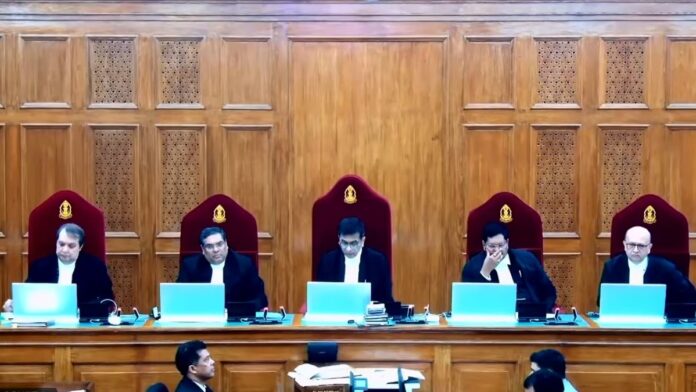New Delhi, Feb 15: In a significant legal development, Chief Justice of India D.Y. Chandrachud has deemed the electoral bonds scheme unconstitutional, citing its infringement on the right to information of voters. The judgment, pronounced on Thursday, highlights concerns regarding potential quid pro quo arrangements and the opacity surrounding financial contributions to political parties.
CJI Chandrachud underscored the inherent risks associated with financial contributions to political parties, suggesting that such transactions could lead to quid pro quo arrangements, influencing policy decisions or granting favors to contributors. He emphasized that the anonymity of contributions through electoral bonds hampers the voters’ right to information guaranteed under Article 19(1)(a) of the Constitution.
The verdict stems from pleas challenging the validity of the electoral bonds scheme, which were heard by a 5-judge Constitution Bench headed by CJI Chandrachud. The bench, after three days of arguments, reserved its judgment in November 2023.
Petitioners argued that the electoral bond scheme not only violates citizens’ fundamental right to information but also facilitates backdoor lobbying, promotes corruption, and creates an uneven playing field for political parties, particularly those in the Opposition.
Justice Chandrachud highlighted the significance of transparency in political funding, asserting that access to information about the funding of political parties is essential for voters to make informed choices during elections. He further noted the correlation between economic inequality and political engagement, suggesting that financial disparities contribute to differential levels of political influence.
The ruling underscores broader concerns about the intersection of money and politics, raising questions about the integrity of electoral processes and the democratic principles they are meant to uphold.
The judgment marks a significant milestone in the ongoing debate over electoral reforms and underscores the judiciary’s role in safeguarding democratic values and ensuring transparency in political processes.
Stay tuned for further developments as stakeholders react to this landmark decision and its implications for the future of political financing in India.
Also Read: PM Modi: BAPS Hindu Temple Inauguration Marks ‘Golden Chapter’ for UAE









